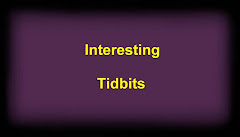.jpg)
Events kick off with the opening of the University Art Museum's exhibition 'Uncharted,' Sept. 15, 5-7 p.m.
To mark the Hudson-Fulton-Champlain Quadricentennial, the University at Albany and The University at Albany Foundation present a three-part Hudson 400 program: Art Exhibition, Talks and Concert, and Conference. The program explores the impact of the historic voyages of Henry Hudson and Samuel de Champlain and the influence of the Hudson River in particular on history, economics, transportation, art, and literature.
Hudson 400 kicks off on Sept. 15 with a free opening reception from 5-7 p.m. of the "Uncharted" art exhibition at the University Art Museum. Set against the larger context of travel and discovery, this group exhibition considers the potentialities and perils of navigating unfamiliar waters. Going beyond geographic exploration, the artists propose an imagined world of discovery and adventure that often parallels the artistic process itself. Works by Radcliffe Bailey, Olaf Breuning, Anna Conway, Mark Essen, Adam Frelin, Valerie Hegarty, David Herbert, Emre Huner, Matt Leines, and Cameron Martin will be on display. The exhibition, also free, runs through December 13.
Along the Hudson-Champlain Corridor, the Hudson 400 Talks and Concert series, includes 16 events in venues in the community and on the UAlbany campus. "This is a community commemoration,” said UAlbany President George M. Philip, “a coming together to see this remarkable region in new and meaningful ways.” Presentations include:
* Tom Lewis, Skidmore Professor and author of The Hudson: A History, offering a panoramic view of the river’s past, from explorers to environmental crusaders;
* Assemblyman John J. McEneny examining the “Capital” river through the people and powerbrokers who defined its place in history;
* Journalist Fred LeBrun discussing his 1998 18-day canoe trip spanning the river’s length;
* Bard College Archaeologist Christopher Lindner discussing the ancient peoples along the Mohicanituk, “the river that flows both ways;”
* UAlbany historian Warren Roberts focusing on the Battle of Saratoga as a crucial event connecting the first two great modern revolutions -- the American and French revolutions;
* UAlbany historian David Hochfelder putting the Hudson River in the context of American’s transportation revolution;
* P. Thomas Carroll, of the Hudson Mohawk Industrial Gateway, examining the growth of the Hudson-Mohawk region as the Silicon Valley of the 19th century;
* UAlbany historian Gerald Zahavi detailing the hazards of trade and travel on the Hudson from river pirates plying its waters for over 300 years;
* UAlbany urban geographer John Pipkin addressing the early 20th-century political struggle over Albany’s squalid riverfront and approaches to improving it;
* SUNY New Paltz historian Susan Ingalls Lewis discussing the role of 19th-century working and entrepreneurial women in building the valley’s economy;
* Bard College History Professor Myra Young Armstead presenting the life of a wage-earning freed fugitive slave in the Pre-Civil War Hudson Valley;
* Sara Johns Griffen of the Olana Partnership discussing the river as inspiration for the Hudson River School of painting as well as scenic landscape preservation;
* UAlbany historian Ray Sapirstein focusing on the early works of art photographer Walker Evans, taken in the Hudson Valley;
* Modern-day artist Len Tantillo discussing his research and historical paintings of the Hudson and his exhibition in Holland;
* UAlbany communications lecturer William Husson focusing on the ways in which documentary and fiction films portray the river and its stories;
* The Hudson River Ramblers and The Barefoot Boys presenting – in a concert – the lively music and stories that the river has inspired and continues to inspire.
“Faculty at UAlbany and other institutions are discovering original ways of looking at the stories, the history, and the artwork inspired by the Hudson River. This new knowledge and these varied perspectives in the humanities inform us about our past and future," said Provost and Vice President for Academic Affairs Susan Phillips.
The UAlbany’s Hudson 400 also includes the Nov. 19-20 history conference, Researching New York: 400 Years of Exploration, the Hudson-Champlain Corridor and Beyond (UAlbany campus, registration fee). A featured event of the conference includes a free public talk at 7 p.m. on Nov. 19, when Columbia University historian Kenneth T. Jackson will present The Future of New York State History at the New York State Museum.
Richard F. Hamm, UAlbany History Department chair, noted that “learning about the significance of the Battle of Saratoga, or the importance of the Hudson River as a transportation route, not only helps us appreciate the past, but also gives us a base of understanding to guide us toward the future. History provides the big picture of how the politics, the landscape, the economy, and the people all combine in the Hudson’s story."
The New York Council for the Humanities (NYCH) provided a major grant award of $19,600 for Along the Hudson-Champlain Corridor, the Talks and Concert series. Community co-sponsors include the Albany Institute of History & Art, the New York State Museum and the Archives Partnership Trust.
Tuesday, September 8, 2009
University of Albany Offers Semester-Long Community Commemoration For Hudson 400 - Historic Voyages of Henry Hudson and Samuel de Champlain
Posted by
BRE
at
12:20 PM
![]()
Subscribe to:
Post Comments (Atom)

.jpg)




.jpg)
+(2).jpg)
.jpg)
.jpg)

.jpg)
+(2).jpg)
+(2).jpg)
+(2).jpg)
_(2)+(2).jpg)
+(2).jpg)
+(2).jpg)
_(2)+(2).jpg)
+(2).jpg)


.jpg)
.jpg)
+(2).png)
+(2).jpg)
.jpg)
.jpg)
+(2).jpg)
+(2).jpg)
+(2).jpg)
.jpg)
+(2).jpg)
+(2).jpg)
+(2).jpg)
_(2)+(2).jpg)
+(2).jpg)
.jpg)
+(2).jpg)
+(2).jpg)
+(2).jpg)
.jpg)
.jpg)
+(2).png)
.jpg)
.jpg)
.jpg)
.jpg)
+(2).jpg)
+(2).jpg)

.jpg)

+(2).jpg)
.jpg)
.jpg)
.jpg)
.jpg)
.jpg)
.jpg)
.jpg)
.jpg)
.jpg)
.jpg)
.jpg)
.jpg)
.jpg)
.jpg)
.jpg)
.png)
.png)
.jpg)
.jpg)
.jpg)
.jpg)
.jpg)
.jpg)
+(2).jpg)
.jpg)
+(2).jpg)
.jpg)
+(2).jpg)
.jpg)
.jpg)
.jpg)
.jpg)
.jpg)
.jpg)
.jpg)
.jpg)
.jpg)
.jpg)
.jpg)
.jpg)
.jpg)
.jpg)
.jpg)
.jpg)
.jpg)
.jpg)
.jpg)
.jpg)
.jpg)
.jpg)
.jpg)
.jpg)
.jpg)
.jpg)
.jpg)
.jpg)
.jpg)
.jpg)
.jpg)
.jpg)
.jpg)
.jpg)




No comments:
Post a Comment